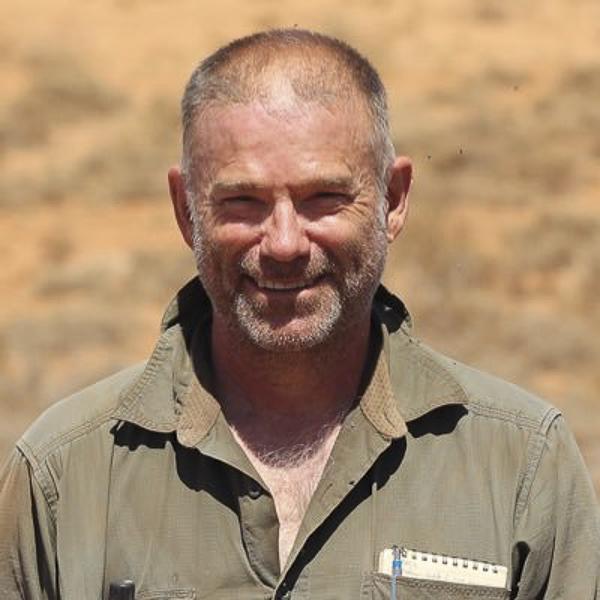
Dr Adrian Pinder
Principal research scientist, WA Department of Biodiversity, Conservation and Attractions
See Dr Pinder’s full research profile here.
Research outputs linked to policy change and decision-making
- A biological survey of the south-west agricultural zone. Dr Pinder described and modelled the spatial patterning in aquatic faunal biodiversity in the economically important south-west agricultural zone of Western Australia. This provided baseline data for i) assessing changing condition of wetland ecosystems, ii) selection of wetlands and catchments for conservation programs, iii) assessment of the conservation status of threatened species and ecological communities, iv) responses of wetland fauna to ongoing dry-land salinisation, v) design of agricultural drainage assessment processes, and vi) assessment of potential impacts from a range of development proposals.
- Several projects that have surveyed aquatic biodiversity in the Pilbara region of Western Australia. Dr Pinder described the spatial patterning in aquatic faunal biodiversity and modelled the underlying drivers of patterning. This provided baseline data for assessing changing condition of wetland ecosystems: i) an assessment of the design of the region’s conservation estate, ii) assessment of the conservation status of threatened species and ecological communities, iii) assessment of potential impacts from a range of development proposals, especially mining, iv) understanding of the environmental water requirements of Pilbara river-pool invertebrate communities, and v) assessment of the impact of invasive redclaw crayfish.
- Aquatic oligochaete systematics. Dr Pinder is the Australasian authority on this group of aquatic organisms. His taxonomic work (species descriptions, family-level reviews) and identification tools (identification guides, keys, workshops and an upcoming book chapter) has resulted in this group of ecologically important benthic animals being included in aquatic ecology and monitoring projects nationally, including for environmental impact assessment (including for stygofauna), conservation status assessments (ecological communities) and aquaculture.
Current academic employment and positions
WA Department of Biodiversity, Conservation and Attractions (DBCA)
- 2018–present: principal research scientist, biodiversity and conservation science (BCS)
- 2014–present: program leader, BCS ecosystem science program (previously wetland conservation program)
- 1996–present: DBCA researcher.
Highest qualification
- 1986: BSc (Hons), Murdoch University.
Roles on government or regional organisation committees
- Western Australian wetland coordinating committee (2007–2019) – coordinates wetland policy across government and guides implementation of the wetland conservation policy
- freshwater ecosystems working group – ensures information exchange within Western Australian Government agencies on management and conservation issues and programs affecting inland waters
- member of mosquito control advisory committee – allocates resources to local government authorities for mosquito control
- Western Australian representative on the shorebird conservation action plan steering committee
- member of numerous working groups and technical advisory committees, including for development and implementation of recovery plans for threatened species, ecological communities and Ramsar wetlands
- senior leadership team, DBCA’s biodiversity and conservation science (member 2014–present) – develops strategy and high-level leadership of DBCA’s biodiversity and conservation science, engagement with DBCA’s conservation and land management priorities.
My Projects
 Current project
Current project Completed project
Completed project
NESP RLH, 2021-2027NESP, 2015-2021NERP, 2012-2015TRaCK, 2005-present
